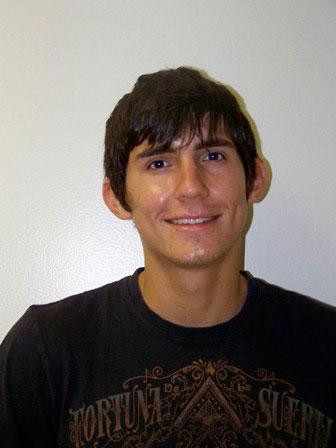 Jennifer Rowland, a graduate student in the Department of Microbiology and a student in the lab of Michael Niederweis, Ph.D. ; and Nicholas Eustace, a first-year student in the M.D./Ph.D. program, will work with Adrie Steyn, Ph.D., a UAB Microbiology faculty member who splits his time between K-RITH and UAB.
Jennifer Rowland, a graduate student in the Department of Microbiology and a student in the lab of Michael Niederweis, Ph.D. ; and Nicholas Eustace, a first-year student in the M.D./Ph.D. program, will work with Adrie Steyn, Ph.D., a UAB Microbiology faculty member who splits his time between K-RITH and UAB. K-RITH began as a groundbreaking collaboration between the Howard Hughes Medical Institute and the University of KwaZulu-Natal, with public sector support through LifeLabs, the biotechnology investment arm of the South African government.
 K-RITH's mission is to conduct outstanding basic science research on tuberculosis and HIV and translate the scientific findings into new tools to control TB and HIV. In addition to its research mission, K-RITH is committed to motivating young scientists to address the crises of TB and HIV by expanding the science education opportunities in the region as well as strengthening the TB and HIV research capabilities of scientists throughout Africa.
K-RITH's mission is to conduct outstanding basic science research on tuberculosis and HIV and translate the scientific findings into new tools to control TB and HIV. In addition to its research mission, K-RITH is committed to motivating young scientists to address the crises of TB and HIV by expanding the science education opportunities in the region as well as strengthening the TB and HIV research capabilities of scientists throughout Africa. Rowland and Eustace will spend eight to 12 weeks at K-RITH this summer. They, along with other students chosen from programs at Johns Hopkins University and Harvard University, will have an opportunity to participate in HIV and TB-related research in the new state-of-the-art research facility at K-RITH. The K-RITH internship is sponsored by the UAB Global Health, Infectious Disease and Vaccine Steering Committee, which received funds for this important outreach from Ray L. Watts, M.D., UAB’s president and former dean of the School of Medicine.
Watts recently designated more than $100,000 in funds from AMC21, UAB Medicine’s strategic plan, to fund new initiatives proposed by the steering committee. Global health has been deemed an area where continued investment can solidify UAB’s leadership position, prepare it to win interdisciplinary research grants and help it to recruit exceptional students.
According to the World Health Organization, 34 million people are infected with HIV globally, with 1.8 million annual deaths and 60 percent of all cases occurring in Africa. Tuberculosis is second only to HIV as a global killer, with nearly 14 million people infected and 1.4 million deaths each year. The largest number of new TB cases occurred in Asia in 2011, accounting for 60 percent of new cases globally, but sub-Saharan Africa had the greatest proportion of new cases per population. A third of people with HIV also have TB, and HIV infection often turns TB from a dormant infection into a deadly, active one.